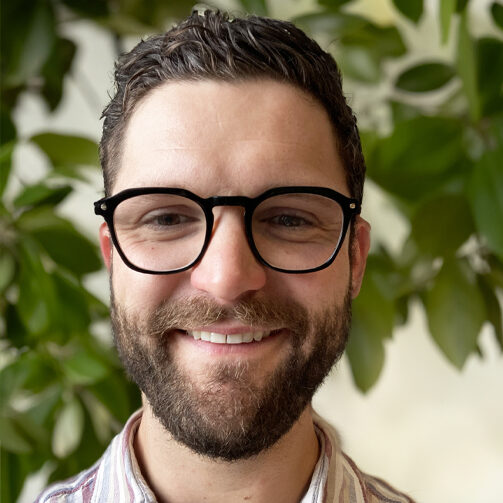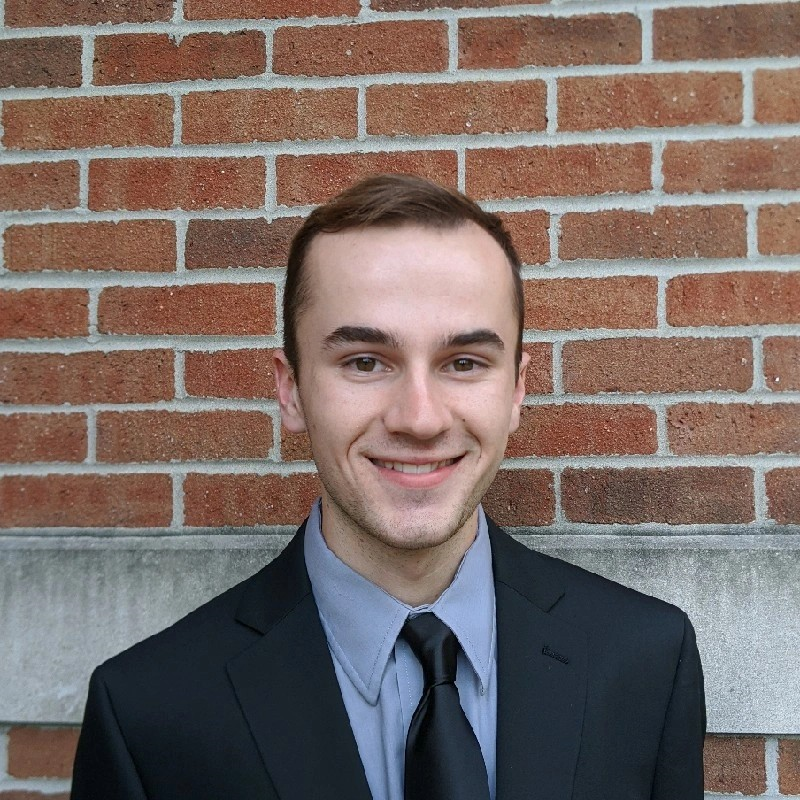The Indiana CTSI facilitates formative research experiences for medical students
After his first year of medical school at Indiana University School of Medicine, Davis Meadors chose to explore research “largely out of curiosity.”

Meadors, a self-described “crooked arrow” who studied philosophy before attending medical school, knew that he had a lot to learn about conducting empirical research.
“Was I interested in research? What is it like to collaborate in this way? What would it look like to be a clinician and also do this?” Meadors recalls asking himself. “IMPRS was a terrific way to get initial exposure.”
The Indiana Medical Student Program for Research and Scholarship, or IMPRS, is a summer program that gives medical students the opportunity to conduct research with a mentor. In the program, students get career development advice, education and mentored research training that prepares them for careers in clinical and translational research.
During this time in IMPRS, Meadors worked with IU’s Adolescent Behavioral Health research group to identify suicide risk screening practices at IU Health primary care clinics and to ask how practitioners and clinic staff think about triage, decision-making, and care for at-risk youth.
“IMPRS confirmed to me that I would like to incorporate research in my career, and—invaluably—exposed that there are a number of competencies I need to beef up on in order to do it well,” Meadors said.
For Meadors and others, IMPRS is an important stop on the path to a career in biomedical research, as well as a springboard to the Medical Research Scholars Program (MRSP) at the National Institutes of Health (NIH). MRSP is a highly competitive, year-long immersion program for future clinician-scientists. Meadors, who was quoted in a recent NIH announcement about the 2025-2026 MRSP class, recently began his year in the program. He will work with a senior investigator in bioethics at the NIH to quantify and assess public understanding and support of medical aid-in-dying laws, as well as study the nuances around what qualifies as a terminal illness.

Luke Jackson, a third-year medical student at IU School of Medicine, also participated in IMPRS after his first year in medical school, and then went on to complete a gap year in the MRSP.
“I chose to do IMPRS because I see research being an integral part of my future career as a physician-scientist,” Jackson said.
Jackson’s interest in research stems from witnessing his sister’s struggles with epilepsy. He said he is motivated to help improve the quality and options of care provided to patients, particularly those with debilitating neurological conditions.
However, “in the traditional medical school curriculum, there are limited formal research training experiences for students who are interested in research,” he said.
For students like Jackson, IMPRS presents an important opportunity to lay the foundation for a research career.
During his time in the program, Jackson evaluated the growth rate of primary glioblastoma cell lines under different oxygen tensions in vitro.
“While 8 weeks isn’t a long time to complete a research project, I was able to get hands-on experience in the lab with how to design an experiment, how to troubleshoot, when things go wrong, and then how to navigate professional development and networking outside of the lab,” he said.
He said he also appreciated the program’s weekly didactic sessions, which were geared towards professional development and career advice from physician-scientists at IU.
His experience in IMPRS prepared him to be successful in the MRSP at the NIH, he said.
“Time both in the lab and outside of the lab during IMPRS served as a good introduction and foundation to the research and didactic sessions that I would encounter and build upon through MRSP.”
Gaining both skills and vision through medical school research experiences

Daniela Vultorius, a fourth-year medical student at IU School of Medicine, also completed the MRSP program at the NIH in the same cohort as Jackson. She did not participate in IMPRS, but has pursued research projects throughout her academic career, including in medical school.
“My experiences in both bench and translational research helped lay the foundation for my time in the MRSP by teaching me to remain adaptable and flexible while troubleshooting experiments, navigating unexpected results, and shifting my project’s focus when new data emerged,” she said.
In the MRSP, Vultorius studied cortical visual impairment in progressive multifocal leukoencephalopathy, a neuroinfectious disease caused by the Human polyomavirus 2, commonly referred to as the “JC virus.”
She said that during her year in the program, she learned that “research is a journey, one that evolves and grows the more you learn and dig into a question.”
For those students, seeking out research experiences during medical school is vital for gaining the skills they need to be successful investigators. But these experiences also help them expand their understanding of what a career in research might look like.
“I think that IMPRS is an extremely valuable program to show students the importance of biomedical research in how we determine the care we provide to patients,” Jackson said. “It also provides opportunities for students to see the variability in training paths that each physician can take to incorporate scholarly activity into their future practice.”
The Indiana CTSI encourages students at the IU School of Medicine who are interested in exploring research to learn more about the program on the IU School of Medicine portal. Additionally, investigators can learn about mentoring an IMPRS student on the Indiana CTSI website.